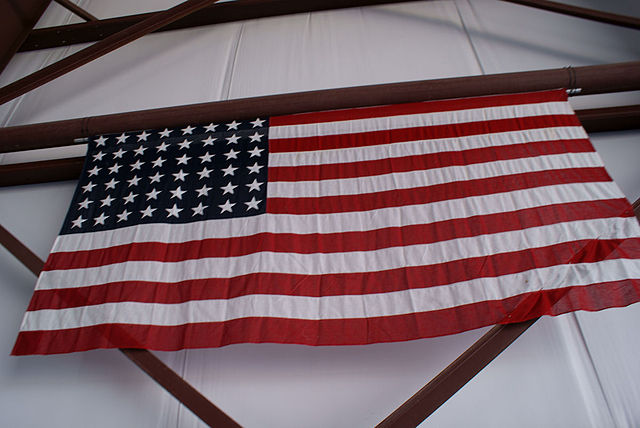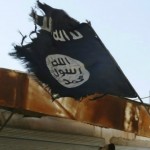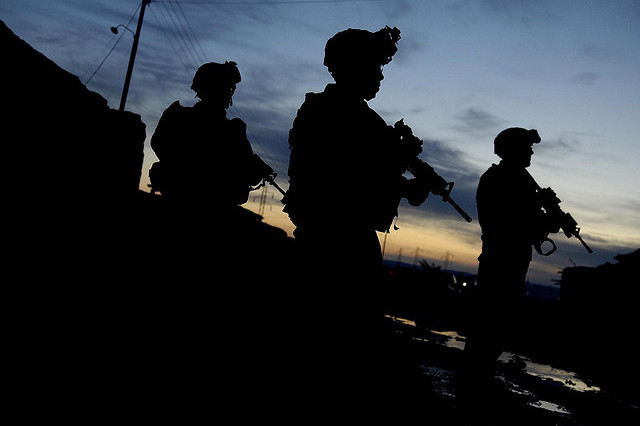by James A. Russell
A variety of recent opinion polls indicate that a significant portion of the American public remains deeply fearful of international terrorism. Many Americans even feel less safe now than they did before the 9/11 attacks.
A CNN poll conducted in September found that 53% of Americans believe that more terrorist attacks on the homeland are likely. Seven out of ten Americans meanwhile believe that Islamic State (ISIS or IS) has operatives in the United States who are planning future attacks.
These deep-seated fears formed part of the backdrop in the recent US midterm elections that swept Democrats from power in the Senate and added to the Republican majority in the House. America today lives in an age of fear, loathing, and anxiety that might have produced good copy by Gonzo journalist Hunter S. Thompson, if he was alive today, but which bespeaks a republic that has lost its confidence as well as its emotional and intellectual moorings.
Yet it’s hard to understand why if we consider our present circumstances. As noted by terrorism expert Peter Bergen at a recent symposium (echoing figures from a variety of sources) 22 Americans have lost their lives in the United States since the 9/11 attacks in violence perpetrated by attackers expressing support for Islamic extremist causes. Of those 22, 13 were killed in a single attack inside a US military base at Fort Hood, Texas in November 2009.
The numbers of Americans killed outside their borders due to terrorist attacks is somewhat higher, but still remains small. According to the State Department, 16 Americans lost their lives as a result of terrorism related violence around the world in 2013.
In short, Americans have more to fear from slipping in the shower or falling down the stairs than they do of terrorist-inspired violence. They definitely have more to fear from random handgun-related violence in their neighborhoods, which has lead to nearly 1,000,000 fatalities and injuries since 9/11 in the United States. Yet many people resist even rudimentary steps to control access to guns at home while enthusiastically supporting America’s trigger-happy foreign policy around the world.
How do we explain the incongruence and disconnects between the American public’s perceptions and these realities? Political and military leaders are part of the problem.
Instead of reassuring the public about the threat of terrorism relative to other dangers, political leaders have actively played upon public fears by continually asserting the imminent dangers of new and more dangerous attacks.
One result has been the establishment of the national security surveillance state by the generation of Vietnam War protesters that once took to the streets to protest the overreach of the state in the 1960s and 70s. Even the postal service recently disclosed that it had received 50,000 requests from the government to read people’s mail during 2013 in national-security related surveillance. Not to mention the intercepted phone calls and emails, to say nothing of those who are being watched in other countries. The public has greeted this development with little more than a yawn.
Of course, even as political leaders from both sides of the aisle mercilessly exploit people’s fears, the fact is that they are mirroring general public attitudes and perceptions. The slide of the American public into fear and loathing post-9/11 has paralleled the state’s political descent into anarchy at home. Republican religious zealots and conservative ideologues have brought their version of the Taliban home to the United States, just as our armies sought in vain to drive the group away from major Afghan cities in America’s longest war.
Therein lies the strategic consequences of the 9/11 attacks that went far beyond Osama Bin Laden’s wildest dreams when he and his lieutenants concocted the idea of flying airplanes into buildings. It’s the gift that just keeps on giving to Islamic extremists as America spies on its citizens at home and careens around the world blasting away at real and imagined enemies in a vain attempt to bomb them into submission. Unfortunately, the latest crusader army that has been taking shape since the end of the Bush administration only confirms the extremists’ vision of a Western-led war against Islam.
The atmosphere of fear and loathing at home in the United States will only gather momentum with the Republican-led Congress, and the squeamish, defeatist democrats meekly following along. Republican candidates around the country cloaked their winning message in the fear and loathing parlance for which the party has become known for in the post-9/11 era. And it’s not entirely clear what the Republicans are hoping for any more—other than aiding the wealthiest among us and enhancing fortress America to keep out immigrants.
What does this mean for the Middle East? It means that America’s fruitless bombing campaign will continue for the foreseeable future—a slippery slope of commitment that will inevitably involve additional ground troops in the region. America’s quarter century of war in Iraq isn’t ending any time soon.
Another casualty of this campaign may be the failure to reach an agreement to limit Iran’s nuclear program—if a weakened and chastened Obama administration retreats in the face of the Republican (and Israeli) pressure. Meanwhile, a new intifada in the simmering occupied territories would serve as icing on the proverbial cake of America’s failed endeavors that litter the Middle East like shattered glass.
Hunter S. Thompson would have had a field day in today’s world. His drug-infused delirium, which led to his famous novel, Fear and Loathing in Las Vegas, was his only release from the madness surrounding him—but what about us? Unfortunately, it’s Osama bin Laden who has so far had the last laugh from his watery grave in this plot—and the joke is on us.
Photo: Hunter S. Thompson with his IBM Selectric Typewriter. Credit: Michael Ochs Archives/Getty






To Mike, thanks for your interest, and yes, I did intend to say what I did. I’m not sure about he spell checker, but I’m sure the point got across. Considering the atmosphere we live in today, nothing is really what it seems.
I really thought you meant to call for divine intervention rather than go hunting.
And unless spell checkers have gender, you’ve gone and done it again……!
O.K. Mike, seeing this old man seems to be too dense in understanding what you mean, explain it so I can understand?
Sorry Norman, just being picky. I have the greatest respect for your wisdom and clarity of thought.
prey (pr)
n.
1. An animal hunted or caught for food; quarry.
2. One that is defenseless, especially in the face of attack; a victim.
3. The act or practice of preying.
pray (pr)
v. prayed, pray·ing, prays
v.intr.
1. To utter or address a prayer or prayers to God, a god, or another object of worship.
2. To make a fervent request or entreaty.
O.K. Mike you’re correct, but let me say this, the way I sometimes compose my thoughts, is a throwback to my early days, when I was starting out on this road of life, while I worked in the “Produce Department[s] @ Safeway”, an old trick to draw attention to a vegetable or fruit we wanted to push. Misspelling a word, was the usual method, though using words that were spelled slightly different with different meanings, also played a “roll”. Sorry, couldn’t help myself. Thank you also for the compliment, it’s greatly appreciated.